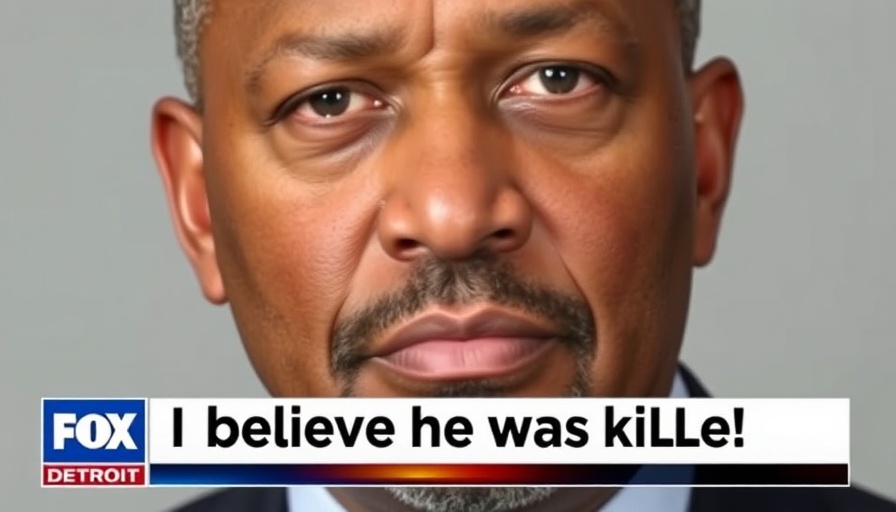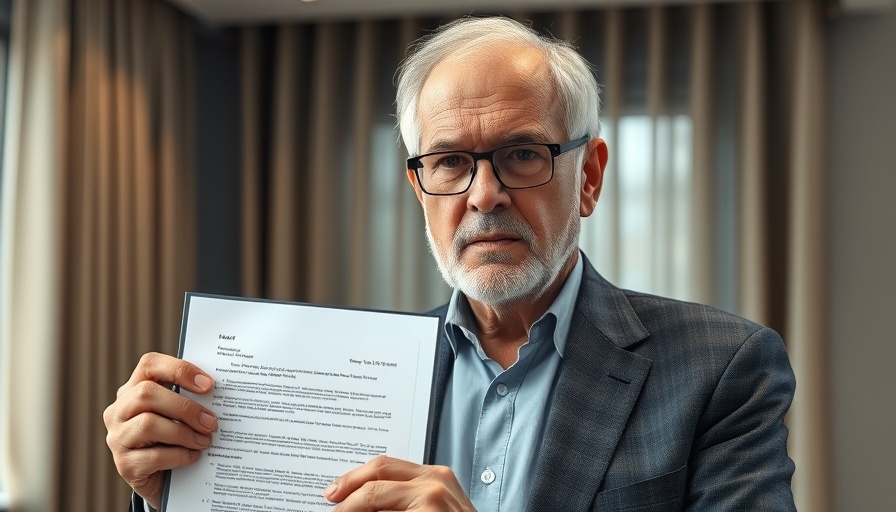
Unarmed Victim Shot: A Turning Point for Police Accountability in Detroit
The recent incident involving an unarmed man being shot by a Detroit police officer has sparked outrage and discussions about police accountability in the city. Body camera footage released from the October 2023 shooting of Brandon Owens sheds light on a troubling moment that has not only affected the victim but also reignited conversations about policing practices and the justice system in Michigan.
In 'Detroit police shooting caught on video; Deadly Allen Park car crash', the discussion dives into police accountability, exploring key insights that sparked deeper analysis on our end.
Owens was shot in the neck after an officer perceived a threat during a chaotic scene. The video shows the officer drawing his weapon as Owens attempted to park his vehicle, which rolled slightly forward. Following the shooting, Owens was charged with a crime and offered a plea deal, which seemed unjust—especially since he was unarmed and attempting to comply with police commands. In a surprising turn, Judge Lawrence El-Assal refused to accept the plea deal, stating that it is the officer who should be held accountable.
Delving into the Legal and Community Implications
The rare decision made by Judge El-Assal shines a spotlight on the critical balance of power within the justice system and its role in community safety. According to Owens' attorney, Dion Webster Cox, this type of judicial action is nearly unprecedented. Often, cases involving police misconduct lead to further victimization of the individuals affected rather than accountability for officers. As this case progresses towards a trial, it sets a critical precedent.
Many community members are eager to see justice for Owens, whose serious injury led to extensive hospital care. The ongoing civil suit against the officer and the Detroit Police Department raises questions about systemic accountability for law enforcement's actions. The outcome will likely influence public perceptions of policing in Detroit and potentially affect local law enforcement policies.
The Intersection of Crime and Policy Reform
The tragic tale of Owens is not isolated; it is part of a broader narrative about police interactions throughout Metro Detroit. The public's response to policing incidents like these reflects a changing attitude toward law enforcement, urging calls for reform and transparency. Community forums and discussions are becoming more prevalent as citizens seek avenues to discuss police practices, engagement methods, and potential changes in the law.
This situation coincides with the upcoming mayoral elections, where candidates address crime prevention, community relations, and urban development. Community members have expressed concerns regarding homelessness, infrastructure, and the importance of neighborhood safety, all while striving for a government that listens to their needs and concerns.
Future Predictions and Insights on Police Accountability
As the discussion of police accountability continues to unfold, predictions abound regarding how this culture of transparency might evolve. Activists and concerned citizens argue for building better relationships between law enforcement and communities in Detroit. This calls for systemic reforms, better training of officers, and ensuring the ethical use of force in policing. The outcome of Owens' case could be pivotal in shaping future policing practices.
Furthermore, as local news outlets emphasize accountability, the public's voice may provoke further legislative action from city officials, leading to improved policies and practices within the Detroit police framework. Upcoming city council discussions could include statutory changes that impact how law enforcement is held accountable and the processes by which citizen grievances are managed.
Community, Policing, and Media’s Role
The media plays a significant role in shaping public perception of crime and policing in Detroit. As the local news covers this incident in depth, the narrative it builds can heavily influence public sentiment. News reports and discussions create spaces wherein community voices can be amplified, urging action from local leaders and police. Engaging citizens through town halls or forums is vital for collective input on community safety and policing practices.
Coverage of Brandon Owens' shooting and the subsequent judicial battles will continue to be central themes in discussions about public safety and civic engagement in Michigan. With the community's eager interest in this topic, there may be an influx of advocacy groups working towards reforming police accountability measures.
Encouraging Civic Engagement and Action
Every person in Metro Detroit has a stake in these conversations. Whether through attending local city council meetings, engaging in discussions on social media, or participating in community initiatives, citizens can push for necessary changes. The recent developments surrounding police accountability serve as a reminder that collective action leads to greater civic governance.
For residents intrigued by the shifting dynamics of policing and community relations, staying informed on the developments in Owens' case is crucial. Not only does it affect police practices, but it also shapes the overall safety and well-being of neighborhoods.
In light of ongoing discussions in the region surrounding police accountability and city governance, it is imperative that citizens stay involved and informed about their rights and the actions of those elected to lead. Engage in city council meetings, leverage the power of local news by sharing insights, and advocate for systemic reforms—because change begins with awareness and action.
 Add Row
Add Row  Add
Add 



Write A Comment